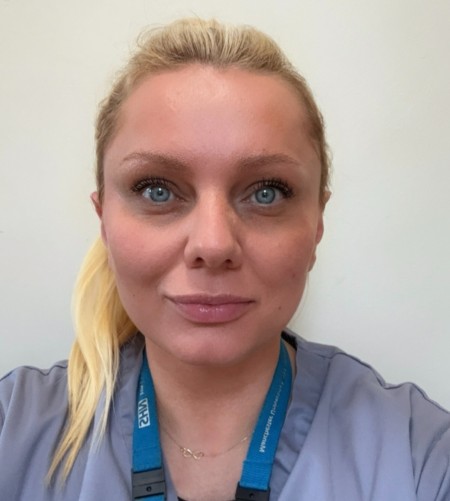World Sleep Day is an annual event, intended to be a celebration of sleep and a call to action on important issues related to sleep, including medicine, education, social aspects and driving. It is organized by the World Sleep Day Committee of the World Sleep Society and aims to lessen the burden of sleep problems on society through better prevention and management of sleep disorders.
In this case study we hear from Agnieszka Matthews, Senior Sleep Physiologist at Trafford General Hospital on the role she plays in helping patients with their sleep. Trafford General Hospital is part of Manchester University NHS Foundation Trust, who is a member of the Greater Manchester Diagnostics Network.
What is your area of expertise?
CPAP Therapy
Sleep Studies
Sleep Hygiene
Blood Gas Analysis
How did you develop skills in this area?
I started working as an ATO over 10 years ago, since then I have completed a number of sleep related courses, in-house training and gained a lot of experience from progressing through roles within the Sleep Service.
Why did you choose a career in your specialist area?
After working within a number of different roles within the NHS I chose to focus and remain with the Sleep Service because I found it interesting, challenging and it plays a vital part in patient's mental and physical wellbeing. Alongside this I enjoy the direct patient care aspect of the Sleep Service and knowing that I’m helping people live healthier lives – making a difference is what matters.
What does a typical day involve?
One of the things I love about my role is that there isn’t really a typical day, every day brings with it different tasks and activities that need to be completed.
Depending on the rota I could be assigned to score respiratory polygraphy studies, where I’m responsible for ensuring the results produced are accurate.
On other days it could be that we have clinics scheduled where we either have to introduce patients to their CPAP equipment or call them to check in on how they are progressing with the therapy and troubleshoot their use of the equipment.
The role I have also has an element of training for more junior staff members, this can involve mentoring during the daily activities or days at University where I present lectures on Sleep Science and the equipment we utilise.
What’s been your biggest inspiration?
My biggest inspiration is to maintain the provision of the best care possible for our patients, we are the biggest Sleep Service in the North-West and we constantly strive to provide the latest techniques and technology to best treat patient sleep disorders.
There is nothing better than holding a follow-up call with a patient and hearing first-hand the difference our treatment has made to their life, and often that of their family as well.
How have you grown in your profession?
Throughout my time in the Sleep Service I have had the opportunity for personal and career development. I have undertaken a degree and many sleep specific training courses and qualifications. Aside from professional development I’ve also progressed through the bands within the department and now perform activities based upon my experience and training. It isn’t only patient related activities, I now have responsibilities for aspects of keeping the department functioning which involves helping with the rota when needed, performing stock audits and ordering new equipment from suppliers.
What has been your biggest achievement so far?
I would say my biggest achievement to date in the Sleep Service is being part of the team that maintained the service throughout the Covid pandemic. We had to alter our approaches to how we delivered aspects of our treatment and move to remote clinics whilst working from home. It took teamwork and flexibility from the service and I take great pride in how we pulled together and kept an adequate level of service to our patients who relied upon us.
What advice would you give to someone looking for a career in your specialist area?
A role in the Sleep Service is a rewarding speciality area to focus upon as you can be involved with diagnosis, testing, monitoring and treatment of sleep disorders. To perform these activities we utilise complex technical equipment which means we must undertake a large component of technical training. The role also has a high level of patient contact and there are overlaps with other specialities to assist patients. If you like the feeling that you help someone by improving their quality of life on the cutting edge of innovation and research then sleep might just be the rapidly growing sector of healthcare for you.
